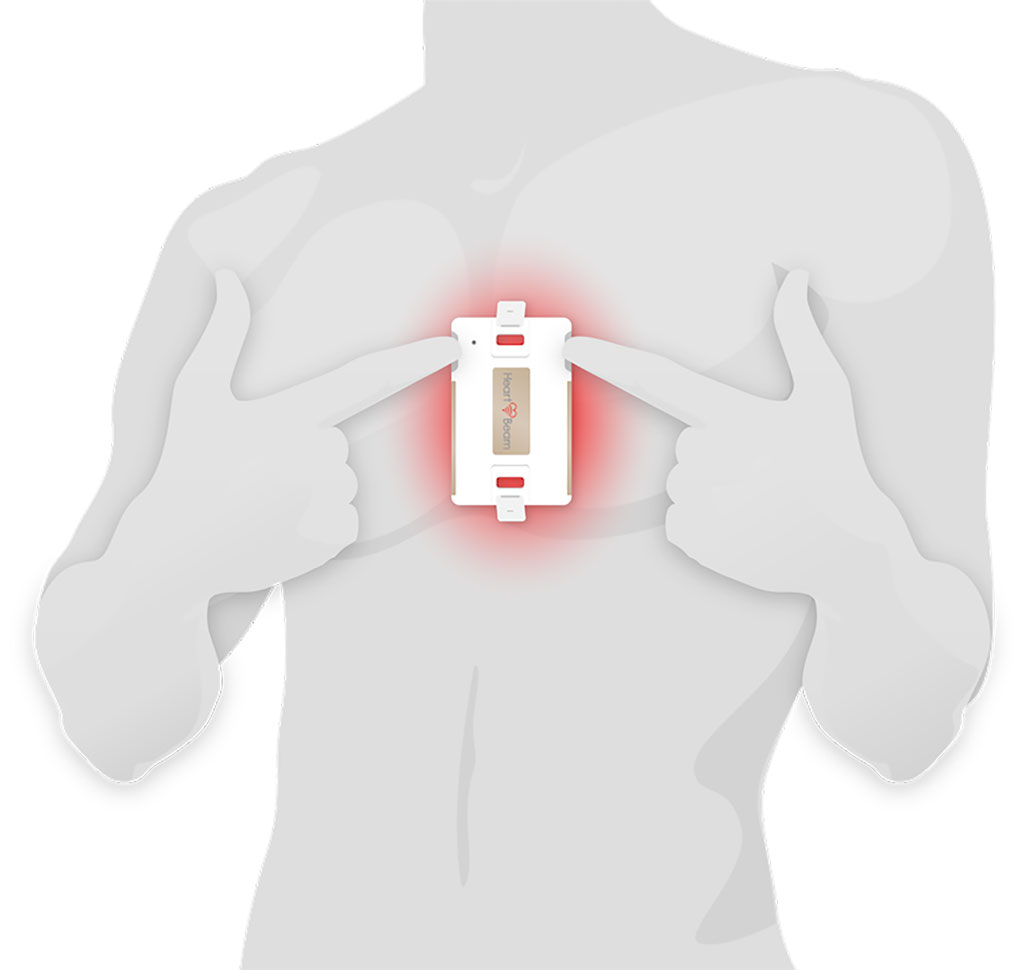Credit Card-Sized Device Offers 12-Lead ECG Readout for Remote Heart Attack Detection
Posted on 09 Dec 2022
In the US, approximately 18 million individuals have coronary artery disease putting them at an increased risk for a heart attack and making them ideal candidates for remote patient heart attack detection. In contrast, the market for atrial fibrillation, the most targeted condition for detection by single-lead ECG technologies, is several times smaller. A 12-lead ECG is the standard of care for detecting any cardiac condition and is considered one of the essential tools for heart attack detection. No single lead ECG product currently in the marketplace is able to help diagnose a heart attack. Now, a patented technology allows a credit card-sized device to enable a 12-lead ECG anytime, anywhere.
HeartBeam, Inc. (Santa Clara, CA, USA), a cardiac technology company that has developed the first and only 3D-vector ECG platform for heart attack detection anytime, anywhere, was recently issued a patent by the United States Patent and Trademark Office that enables generation of a synthesized 12-lead ECG by the HeartBeam AIMIGo credit card-sized device. The innovation opens the pathway for a patient to record a set of signals using HeartBeam AIMIGo outside of a medical setting with a diagnostic synthesized 12-lead ECG immediately transmitted to a physician for review and diagnosis. Unlike single-lead ECG products currently in the marketplace, such as other credit card sized devices or smartwatches, the HeartBeam technology is intended to quickly and accurately help a physician identify a heart attack (myocardial infarction).

The newly issued patent expands on HeartBeam’s granted and pending core patents for remote heart attack detection. The value of the recently granted 12-lead ECG patch patent is in addressing the market need for multi-week, continuous monitoring while the AIMIGo solution is always with the patient, providing a means for timely heart attack intervention. This may increase quality of life for cardiac patients by reducing the fear of chest pain and provide added peace of mind. At the core of both products is HeartBeam’s breakthrough ability to provide a patient-friendly means of obtaining a 12-lead ECG anytime, anywhere.
“This patent provides additional intellectual property protection for our breakthrough AIMIGo technology offering 12-lead ECG capability in the form of a credit card-sized device with the same footprint as the single-lead products currently in the market today,” said HeartBeam CEO and Founder Branislav Vajdic, PhD. “Our 12-lead AIMIGo technology, which is part of our granted patent, offers the potential to bring a level of diagnostic accuracy consistent with the current 12-lead ECG standard of care. This could reduce the critical time to intervention for heart attack patients, saving lives and reducing healthcare costs by ruling out a heart attack and reducing the number of emergency room visits.”
Related Links:
HeartBeam, Inc.














